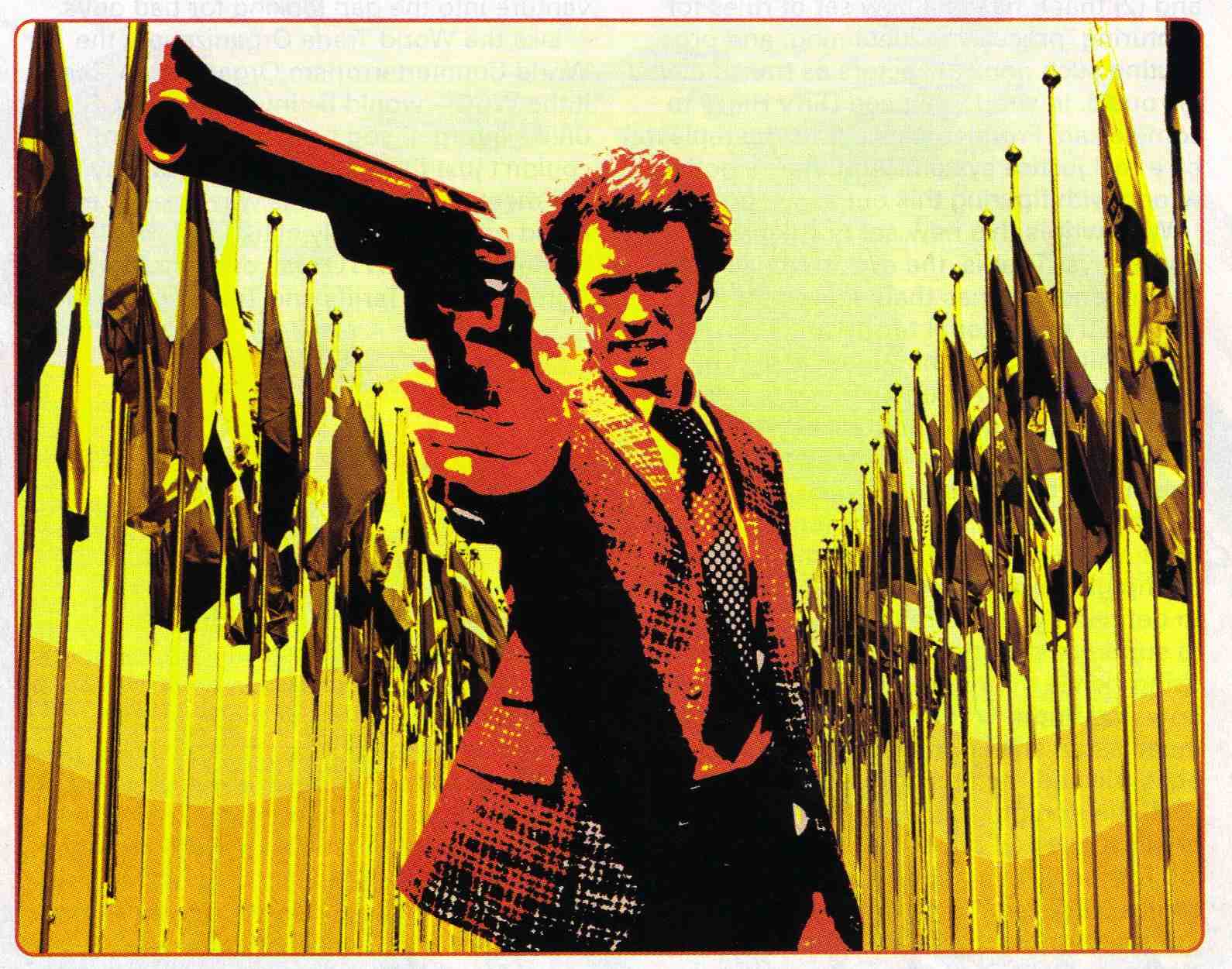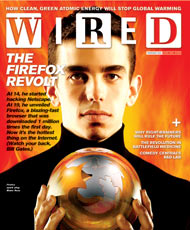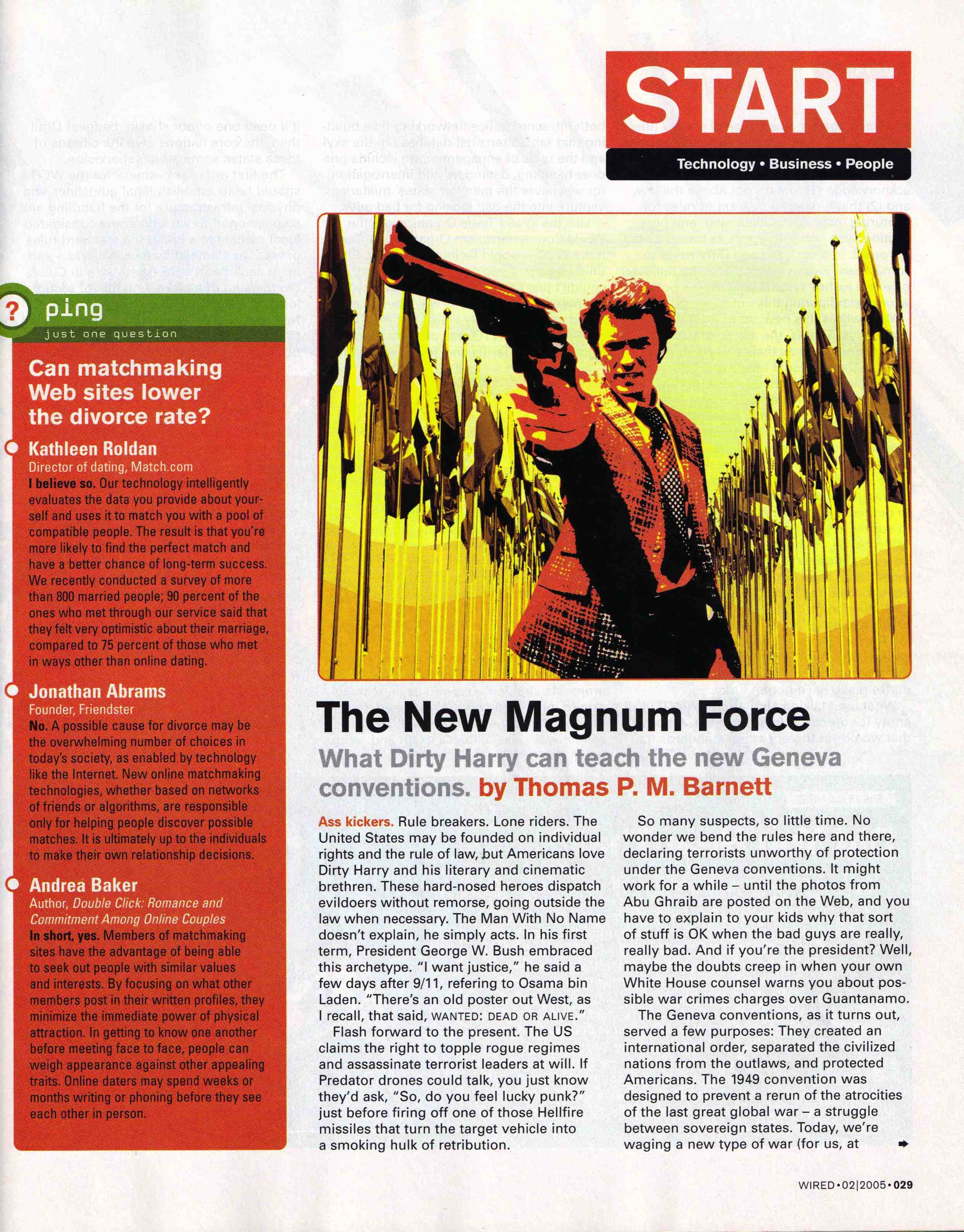 The New Magnum Force: What Dirty Harry can teach the new Geneva conventions
The New Magnum Force: What Dirty Harry can teach the new Geneva conventions
by Thomas P.M. Barnett
Wired, February 2005, pp. 29-30.
Ass kickers. Rule breakers. Lone riders. The United States may be founded on individual rights and the rule of law, but Americans love Dirty Harry and his literary and cinematic brethren. These hard-nosed heroes dispatch evildoers without remorse, going outside the law when necessary. The Man With No Name doesn't explain, he simply acts. In his first term, President George W. Bush embraced this archetype. "I want justice," he said a few days after 9/11, refering to Osama bin Laden. "There's an old poster out West, as I recall, that said, Wanted: Dead or Alive."
Flash forward to the present. The US claims the right to topple rogue regimes and assassinate terrorist leaders at will. If Predator drones could talk, you just know they'd ask, "So, do you feel lucky punk?" just before firing off one of those Hellfire missiles that turn the target vehicle into a smoking hulk of retribution.
So many suspects, so little time. No wonder we bend the rules here and there, declaring terrorists unworthy of protection under the Geneva conventions. It might work for a while - until the photos from Abu Ghraib are posted on the Web, and you have to explain to your kids why that sort of stuff is OK when the bad guys are really, really bad. And if you're the president? Well, maybe the doubts creep in when your own White House counsel warns you about possible war crimes charges over Guantanamo.
The Geneva conventions, as it turns out, served a few purposes: They created an international order, separated the civilized nations from the outlaws, and protected Americans. The 1949 convention was designed to prevent a rerun of the atrocities of the last great global war - a struggle between sovereign states. Today, we're waging a new type of war (for us, at least) against a new type of enemy (the Man With No State). Unless we want to spend the rest of this conflict trying to rationalize police brutality and torture, the US needs to acknowledge (1) that it's not above the law; and (2) that it needs a new set of rules for capturing, processing, detaining, and prosecuting such nonstate actors as transnational terrorists. In short, we need Dirty Harry to come clean. Frontier justice must be replaced by a real justice system. And there's nothing wrong with figuring this out as we go along.
Who writes this new set of rules? The good guys. That is, the states whose interdependence defines their shared vulnerability to transnational terrorism. There is a functioning core of the global economy: the nations in North America, Europe, Russia, the rising and established pillars of Asia, and the major economies of South America. These are the connected states, and one of the things that connects them most tightly right now is a shared commitment to combating global terrorism. The new rules need to define how the core countries cooperate to suppress terrorist activity within the core using police methods. And they'll lay out how and under what conditions it's OK for those same states' militaries to go into the unconnected regions of the world - what I call the nonintegrating gap - to snatch or kill suspected terrorists. This is not a job for the UN. In a global legislative body where Libya gets to chair the Human Rights Commission (who's next, Sudan?), some punks really have gotten lucky.
What am I talking about here? A WTO-like entity for global counterterrorism. A body that would set the operating standards for both intracore police networking (like building that fabled terrorist database in the sky) and the rules of engagement (to include prisoner handling, detention, and interrogation) for whenever the member states' militaries venture into the gap looking for bad guys.

Like the World Trade Organization, the World Counterterrorism Organization - call it the WCO - would be invitation-only. So unlike Interpol, you (yes, you, Pakistan!) couldn't just flash a badge on your way into the meeting. Starting this way doesn't make it bad or unacceptably elitist, just realistic. Remember, the WTO was once the General Agreement on Tariffs and Trade, which grew out of Bretton Woods, which resulted from a few developed nations colluding behind closed doors. Let's allow this baby to grow up some before we toss out the dirty bathwater. It won't be pretty. More mistakes will be made, but along the way terrorists will get dead.
Maybe it smacks of paternalism to let big ol' core militaries simply walk into gap states and do what they must. But we're talking about only the most disconnected societies, where feeble or nonexistent governments should be viewed as something akin to minors. In short, a nonintegrated nation can grow up and out of the gap. It will have to pass a fitness exam and, yeah, it'll need one of our stinkin' badges! Until then, the core nations owe the citizens of these states some adult supervision.
The first order of business for the WCO should be to establish legal guidelines and physical infrastructure for the handling and disposition of those who aren't considered legal combatants under the standard rules of war. So it'll need its own Alcatraz - and no, it can't be in a US naval base in Cuba. I'm thinking of a place with lots of secure locations, like a supermax Switzerland. As for the trials? Prisoners should be funneled toward the International Criminal Court, because you've got to make the UN happy at some point in the process.
All this may sound risky, but either we can wait on some UN universal declaration full of noble nouns and awe-inspiring adjectives - or we can let the cops who walk the beat inside the gap get started writing the book that, eventually, some upstanding Perry Mason can throw at the bin Ladens and al-Zarqawis when they stand in the docket at the Hague. Until then, let Dirty Harry do his thing.
Thomas P. M. Barnett (t_p_m_barnett@hotmail.com) is the author of The Pentagon's New Map: War and Peace in the Twenty-First Century.
